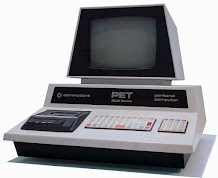We have two general relationships with technology: healthy and unhealthy ones. The first kind of relationship is a healthy one. A healthy relationship is one that makes you feel good about yourself. I never thought about how a relationship with technology could be healthy. After reading some articles about creating a healthy relationship, I thought there were a couple of different ways to have one. The first way that I saw was by having an awareness of your feeling about social media, which is when every time you go on a social media app, you identify a reason for going on and set a goal. Another way I saw it was. It is good to look at everything technology has allowed us to do, like being connected anywhere and providing a new way to learn. It has also just made us as people free to do what we want. I found this video about the positive effects that social media can have.
The other kind of relationship we can have with technology is an unhealthy one. An unhealthy relationship makes you unhappy and can lead to you feeling insecure. Many things could make someone have a negative relationship with technology, like cyberbullying or losing connections. Most people talk about this type of relationship when it comes to this topic. There is also the fact that technology can make you less sociable and unable to have face-to-face contact. There are a lot of harmful things that technology and, more specifically, social media can cause. I found a study from the University of Wisconsin-Madison talking about teens' relationship with technology. The study had the statistic that teens that did not have good roles model for social media had higher rates of depression (56%), anxiety (69%), unhealthy body image (84%), and fear of missing out (85%). I have always seen these issues discussed in relation to technology. For example, FOMO (or the fear of missing out) is something that can stem from you seeing pictures of people close to you doing something that seems fun, and you are not there. While I feel that FOMO has always been an issue, the use of social media has just made it a bigger issue; people are always posting pictures or videos on apps like Instagram and Snapchat, where everyone can see it, which can lead to more FOMO.
My own relationship with technology is complicated. Because technology has been in my life for such a long time, it is hard to see the effects it has had, but overall my relationship with technology has its ups and downs. I believe technology has done both good and bad things in my life. For example, technology has allowed me to be able to be in contact with my best friend and parent from college. I went to college out of state, so it is hard not seeing them all the time, but since I can call or text them anytime, it does not always feel so bad. Though a bad thing that has come from my relationship with technology is that I have such a short attention span because of all the time I spend online watching short videos. It has caused a lot of problems because I have been unable to focus on things for long periods of time now.
- Examining how technological advancements affect the future of human rights.
- Teens, technology, and Cyberstalking: The Domestic Violence Wave of the Future
- Technological Influence on Society
- How the internet and technology shaped Americans’ personal experiences amid COVID-19
- Social Benefit versus Technological Risk
- The Good, the Bad, and the Ugly: Technology Transfer Competence, Rent-Seeking, and Bargaining Power
- Technology: The Good, The Bad, The Ugly











.jpeg)
.jpeg)



.jpeg)
.jpeg)

.png)
.jpeg)